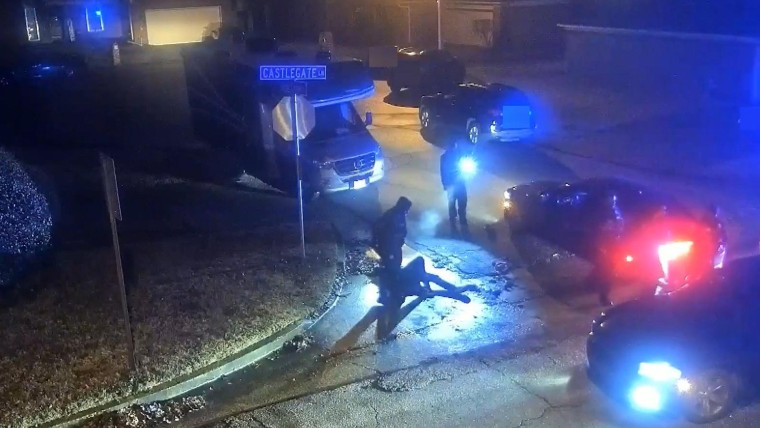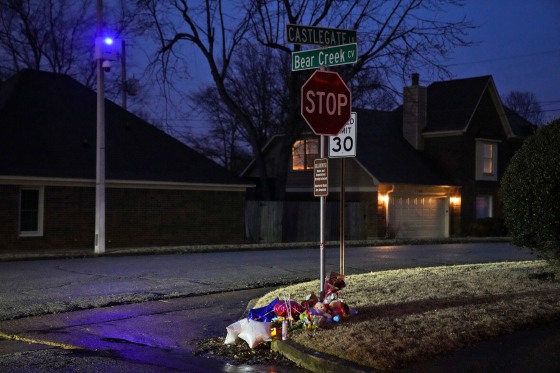When 29-year-old Tyre Nichols was stopped by police in Memphis, Tennessee, on Jan. 7 over what police said was suspicion of reckless driving, he was beaten so badly that three days later he was dead. A single statistic from an excellent New York Times video investigation helps illuminate how that happened.
According to the Times, several police officers gave Nichols 71 commands in 13 minutes — many of which were “confusing, conflicting and sometimes even impossible to obey” because of how police were pinning him down.
If you watch the disturbing video of the exchange, you can see how the instructions weren’t meant to help Nichols cooperate with the police. Instead, they provided the police with a pretext to further escalate violence.
Video footage shows how the police's behavior was about bullying and striking fear in Nichols more than it was about upholding the law.
The deployment of often-nonsensical instructions underscores a key aspect of how Nichols ended up dead after a traffic stop. According to former law enforcement officials and experts, the police were exhibiting a policing ideology in which cops view dominating suspects as essential to their self-preservation and identity.
An examination of the video footage shows how the police's behavior was about bullying and striking fear in Nichols more than it was about upholding the law. Police swiftly dragged Nichols out of his car during the traffic stop. At one point, while one officer pinned his wrist down, another one told him to place his hands behind his back. Around the same time, he was told to lie down — even though he was already on the ground. Moments later, the cops agreed that he should be pepper-sprayed, and he was immediately sprayed in the eyes.

Later, as the police tried to use a stun gun at him, Nichols ran toward what turned out to be his parents’ house. It is perhaps not surprising that he feared for his life given how the police seemed like they couldn’t be mollified. (Note: Nichols was unarmed and rail thin, and as the police initially dragged him out of his car and cursed at him, he spoke in a distinctly calm tone.)
When police caught up to Nichols, again, the video again shows that their instructions didn’t help him find a way out of the violence but appears to provide an excuse for it. For example, he was told to show his hands as he was being hit with a baton even while one of his wrists was handcuffed and his arms were pinned behind him. Nichols was at multiple points kicked in the head as pointless instructions washed over him.
Experts and ex-law enforcement officials have described the treatment of Nichols as a throwback to an antiquated style of thuggish policing that is supposedly considered inappropriate these days. I’m not convinced that such behavior has fallen out of fashion, or at least not persisted in subtler form. Despite public scrutiny and reform efforts in recent years, police violence remains a crisis, and police unions (with at least some degree of support from both political parties) have successfully lobbied against any substantive efforts to constrain the power of police.
But regardless of whether or not you think the problem is getting better, one thing is clear: These police weren’t striving to uphold public safety.
“Their job, they believed, because you were disrespecting the badge, you needed to be beaten, and they were going to teach you a lesson. In some agencies, that history is the history that is there, and nobody talks about it,” Georgetown Law professor Paul Butler, an NBC News legal analyst, said Sunday on MSNBC.
It probably shouldn’t surprise us that such a culture seems to have existed among a specialized strike force in the Memphis police called Scorpion, which, remarkably, stands for Street Crimes Operation to Restore Peace in Our Neighborhoods. The group was formed in response to Memphis’ skyrocketing rate of homicides, and the city touted the group's high arrest rate to claim it was serious about tackling crime. But some residents say the unit had a reputation for bullying the public. Now Scorpion has disbanded after five former Memphis police officers were indicted on murder charges tied to Nichols' death.
A high crime rate is a serious social problem. But brutally bullying those who pose no danger to the public isn’t a serious solution.

